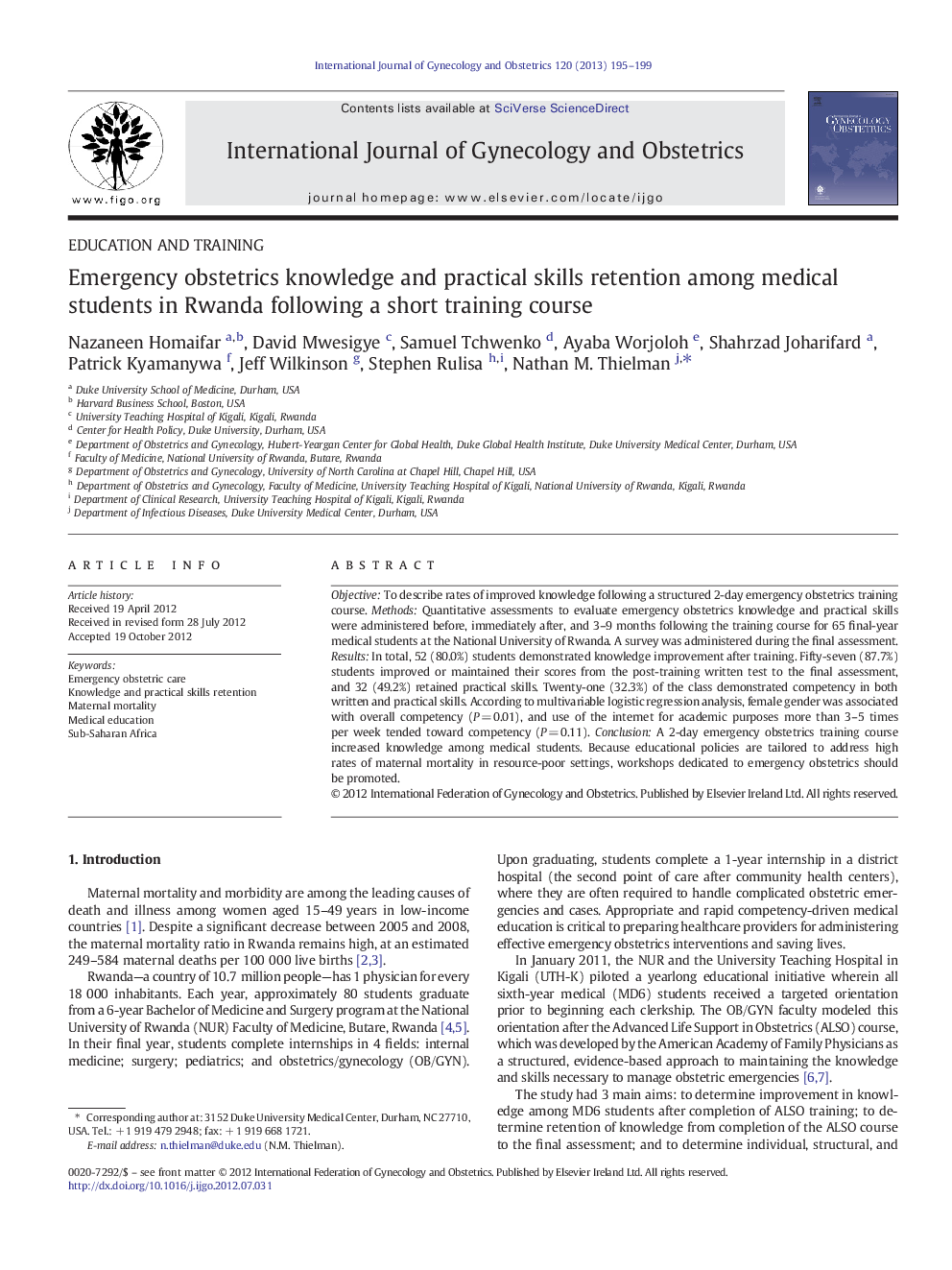| Article ID | Journal | Published Year | Pages | File Type |
|---|---|---|---|---|
| 6187317 | International Journal of Gynecology & Obstetrics | 2013 | 5 Pages |
ObjectiveTo describe rates of improved knowledge following a structured 2-day emergency obstetrics training course.MethodsQuantitative assessments to evaluate emergency obstetrics knowledge and practical skills were administered before, immediately after, and 3-9Â months following the training course for 65 final-year medical students at the National University of Rwanda. A survey was administered during the final assessment.ResultsIn total, 52 (80.0%) students demonstrated knowledge improvement after training. Fifty-seven (87.7%) students improved or maintained their scores from the post-training written test to the final assessment, and 32 (49.2%) retained practical skills. Twenty-one (32.3%) of the class demonstrated competency in both written and practical skills. According to multivariable logistic regression analysis, female gender was associated with overall competency (PÂ =Â 0.01), and use of the internet for academic purposes more than 3-5 times per week tended toward competency (PÂ =Â 0.11).ConclusionA 2-day emergency obstetrics training course increased knowledge among medical students. Because educational policies are tailored to address high rates of maternal mortality in resource-poor settings, workshops dedicated to emergency obstetrics should be promoted.
